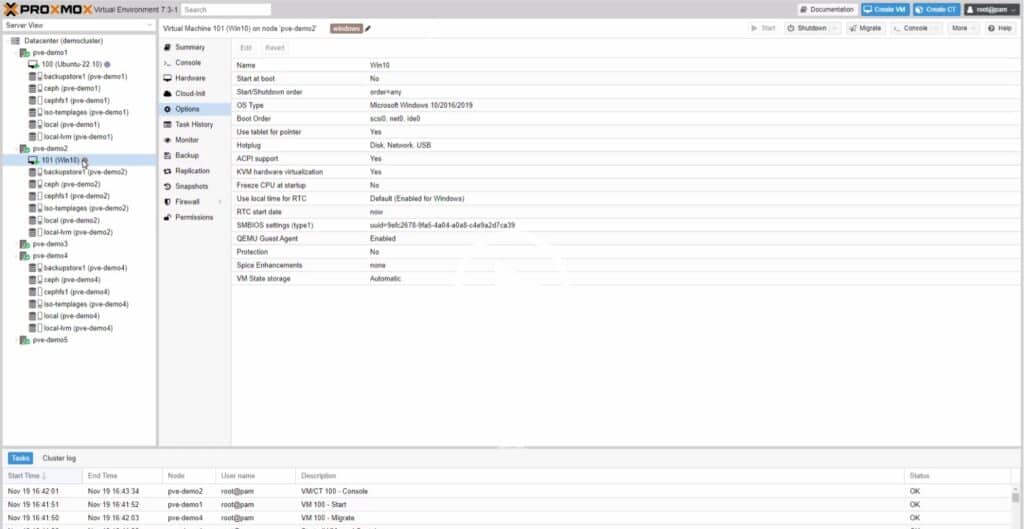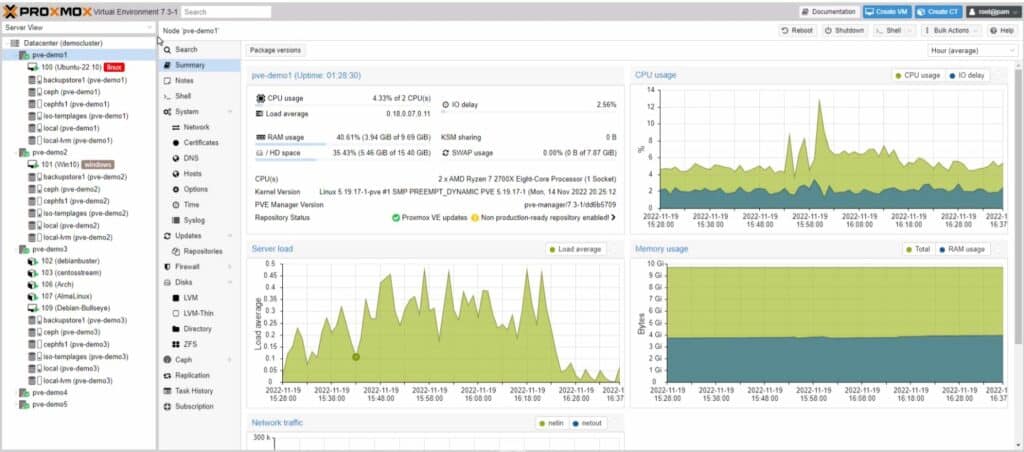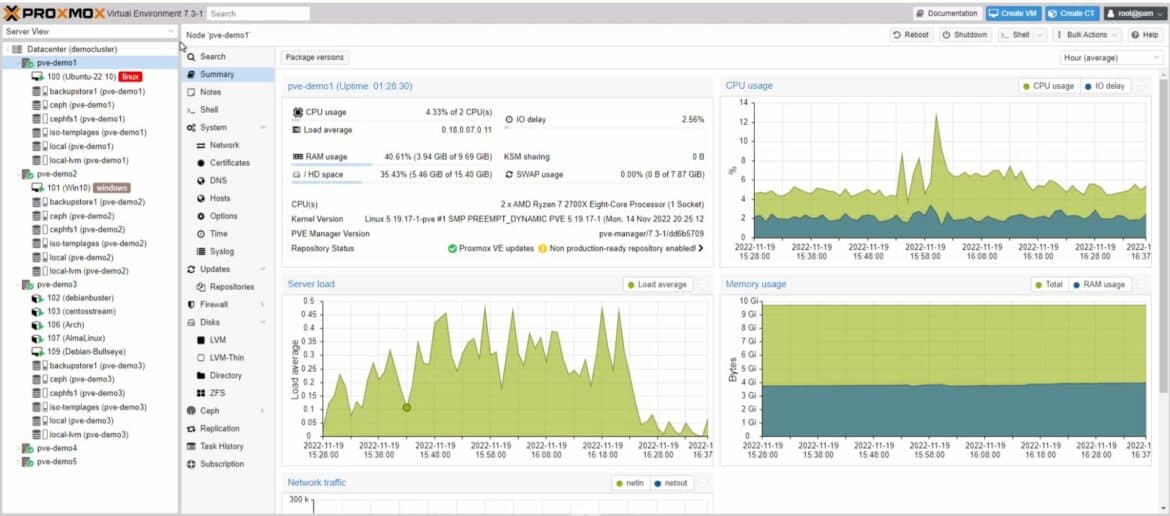Proxmox has announced that the new enhancements to its server virtualization management platform, Proxmox Virtual Environment (VE), are now generally available with version 7.3. With the new general update, users can seamlessly deploy virtual machines and containers, software-defined storage, and networking on a single platform. Proxmox VE 7.3 is based on Debian 11.5 (though it uses a newer Linux kernel 5.15) and includes updates to open-source technologies for virtual environments such as QEMU 7.1, LXC 5.0.0, and ZFS 2.1.6. The virtualization platform also supports Ceph Quincy 17.2.5 as default for new installations with the option of using Ceph Pacific 16.2.10.
Proxmox has announced that the new enhancements to its server virtualization management platform, Proxmox Virtual Environment (VE), are now generally available with version 7.3. With the new general update, users can seamlessly deploy virtual machines and containers, software-defined storage, and networking on a single platform. Proxmox VE 7.3 is based on Debian 11.5 (though it uses a newer Linux kernel 5.15) and includes updates to open-source technologies for virtual environments such as QEMU 7.1, LXC 5.0.0, and ZFS 2.1.6. The virtualization platform also supports Ceph Quincy 17.2.5 as default for new installations with the option of using Ceph Pacific 16.2.10.

Proxmox VE 7.3 Highlights
Initial support for a Cluster Resource Scheduler (CRS)
While the previous version of VE only counted the number of active HA services for load balancing when the Proxmox HA Manager required a new host node for a HA service, the new version integrates the TOPSIS (Technique for Order of Preference by Similarity to Ideal Solution) method. This is a multi-criteria decision-making analysis technology for finding the best alternative target node.

When using the new Static Load scheduler mode, the TOPSIS tool analyzes the total memory and vCPU properties of the HA resource to help make a decision on which node in the cluster a HA resource is started on.
Proxmox Offline Mirror
The Proxmox Offline Mirror tool allows its users to keep Proxmox VE nodes up-to-date and running (even when they have restricted or no access to the public internet). With this new tool, users will be able to manage a local mirror for all Proxmox and Debian project package updates. With this mirror, users can create an external medium via a USB flash drive or a local network share, and update their policy-restricted or air-gapped systems. Proxmox also offers an offline subscription key for its product portfolio to customers with a Premium or Standard subscription level.
Support for Ceph Quincy and Ceph Pacific
As we indicated above, VE 7.3 supports Ceph Quincy 17.2.5 as default and Ceph Pacific 16.2.10 (users can choose which version they wanted during the installation process). The Proxmox has also added “heuristical checks,” which validate whether or not it is safe to stop or remove a service instance (e.g., MON, MDS, OSD). If there is potential to affect the cluster operation, the web interface will now alert users with a warning.
Proxmox indicates the following other enhancements with VE 7.3:
- ZFS dRAID pools: This version comes with support for creating ZFS dRAID pools in the web interface. Declustered RAID (dRAID) – a feature added in OpenZFS 2.1.0 – is a software raid implementation improving disk recovery time in large storage arrays. If a disk drive fails, the hot spare drive(s) participating in the RAID is used for rebuilding. As its layout is more complex than RAIDz, dRAID is an option for large storage arrays.
- Virtual Machines:
- CPU pinning: With the taskset command, a VM can be bound to a certain or a range of CPU core(s). CPU affinity can help optimize cache performance, for example in multiprocessing computers.
- USB devices have been reworked and can now be hot-plugged; it’s also possible to pass through up to 14 USB devices (vs. five previously) to a virtual machine.
- Proxmox VE Mobile App: The Proxmox VE Android app is based on Flutter 3.0, and allows users to access the Proxmox VE server(s), and manage cluster, nodes, VMs, and containers. The app now supports and targets Android 13. Also, feedback about running backup tasks is now available.
Availability
Proxmox VE 7.3 is generally available for download.
For enterprise users, Proxmox offers a subscription-based support model. This provides access to an Enterprise Repository with regular updates via the web interface and technical support directly from the developers.
Engage with StorageReview
Newsletter | YouTube | Podcast iTunes/Spotify | Instagram | Twitter | TikTok | RSS Feed

